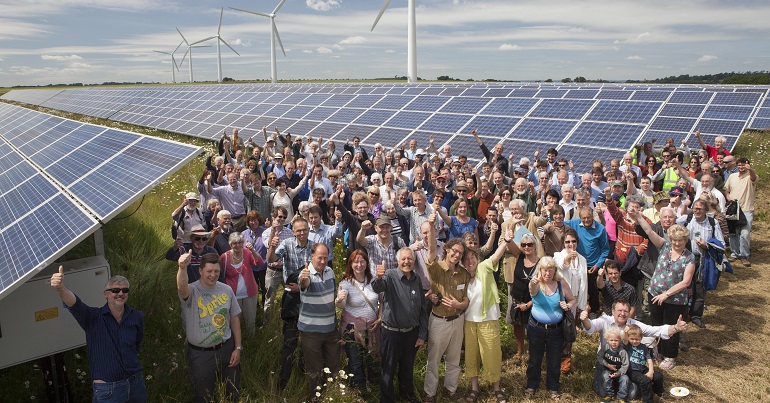How to be a climate activist with your money

From Greta Thunberg to Extinction Rebellion, over the past couple of years, it’s been difficult to avoid news stories about climate change. For every activist taking part in the protests, there are many people who fully support what they stand for, but for a variety of reasons, can’t be with them in person. So what do we ‘armchair activists’ do? Share some social media posts? Sign a petition? there is something very powerful that we all can do to demand climate action – become a climate activist with your money.
If you put money in a savings account, a pension or investment, have you stopped to consider what your own money is funding? It could be funding mortgages or small businesses, but it could just as easily be investing in companies that you may be uncomfortable with, such as tobacco or fossil fuels.
Many leading banks and pension fund providers have made declarations regarding the ethical nature of their investments. But scratch the surface and unfortunately, you’ll see that their actions don’t quite live up to their commitments and they are still wholeheartedly funding large corporations that have a negative impact on the environment.
We’re entitled to be shocked and angered to find our hard-earned cash is supporting polluting industries, but enough talking – what can we, as individuals do about it?
Here are 5 practical steps to start greening your personal finances. It’s surprisingly easy to start small, but these small changes can make a big impact and send a clear message.
1. Current accounts
Take a few minutes to look into your current account provider. You can access all the information you need on their holdings and environmental policy through their annual reports or ESG updates. Or you can look them up on Banktrack to view their sustainability commitments and any suspect deals they’re financing.
Switching current accounts isn’t as difficult as it might seem. There are a growing number of ethical alternatives that will allow you to feel good about your day-to-day banking. Ethical Consumer have put together a guide to current accounts to see some of the greenest options.
2. Pensions
Some investors are quite often happy to delegate pension investment decisions to their company or simply adjust it based on risk appetite. If you are auto-enrolled, then it is worth checking with your employer what fund your pension is invested in. If you are managing your own pension, then many of the pension and SIPP providers give access to ethical and sustainable options. Definitely check out the Good Money Week #mentionthepension campaign, their website is packed full of practical ways to campaign for a better pension fund.
3. Savings Accounts & ISAs
If you have savings products, the same rules apply. Once you hand your money over to a savings provider, do you know where it goes? There are plenty of ethical savings accounts out there, you can browse some of the best on Ethical Consumer and switch your money to start funding something positive.
For tax-free returns that are also guilt-free, take a look at the Innovative Finance ISA. This type of ISA allows you to invest in unlisted debt-based securities and there are plenty of ethical options (including the Ethex and Energise Africa IF ISA). Check out the Good with Money Guide to Ethical ISAs to learn more about the pros and cons of saving and investing via the different ISA types.
4. Investment Funds
More investors are becoming aware of the power of their money and demanding funds that have a positive impact on the planet. In fact, the Investment Association reported that last year, 26% of the UK’s assets under management were invested using a ‘socially responsible’ strategy.
However, be careful – recent research from Ethical Consumer that analysed 22 leading ‘ethical’ investment funds found that only 4 scored more than 10 out of 20 on ethical issues. In other words, be wary of investments that suggest they are otherwise.
There are plenty of other reliable resources out there to help you find an investment fund that does good – take a look at Ethical Consumer or 3D Investing for guidance as to which ones are the most ethical..
5. Direct Investment
If you really want to know where your money is going and what it’s funding, investing directly into businesses or organisations is an option. Platforms like Ethex and Energise Africa feature a range of ethical investment opportunities that you can browse and choose one or more that match your values and your risk profile, typically targeting annual returns from between 4 – 6%. From carbon-busting solar energy and electric vehicles to community housing and organic farming, there are plenty of ways you can use your money to directly fund businesses that do good. These kind investments however, do carry risk in terms of your capital and returns are also not guaranteed.
We all want to make our voices heard when it comes to climate change, but the hard truth is that there’s little point in speaking out if you’re inadvertently paying money into the corporations that are at the heart of the problem. So why not take a small step with a big impact – take control of your money and make your voice heard through financial activism.




Leave a Reply